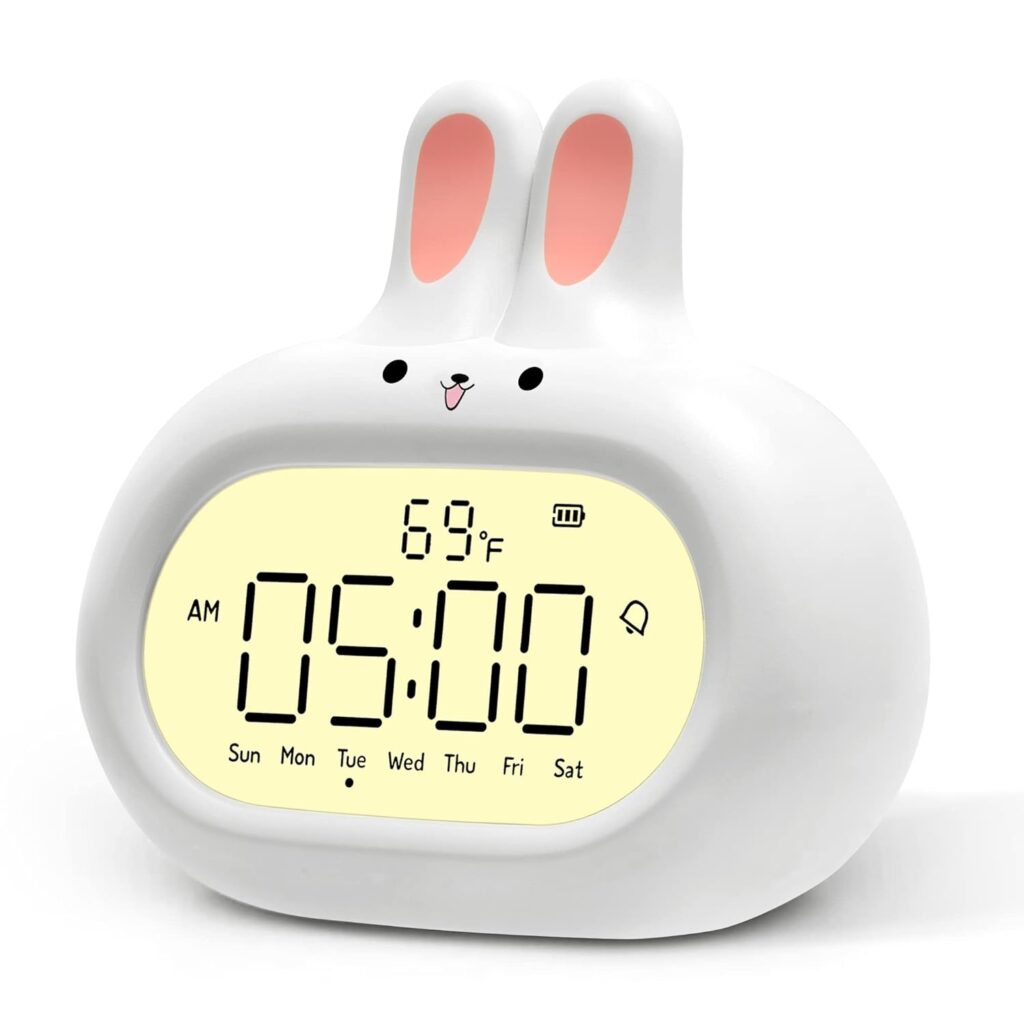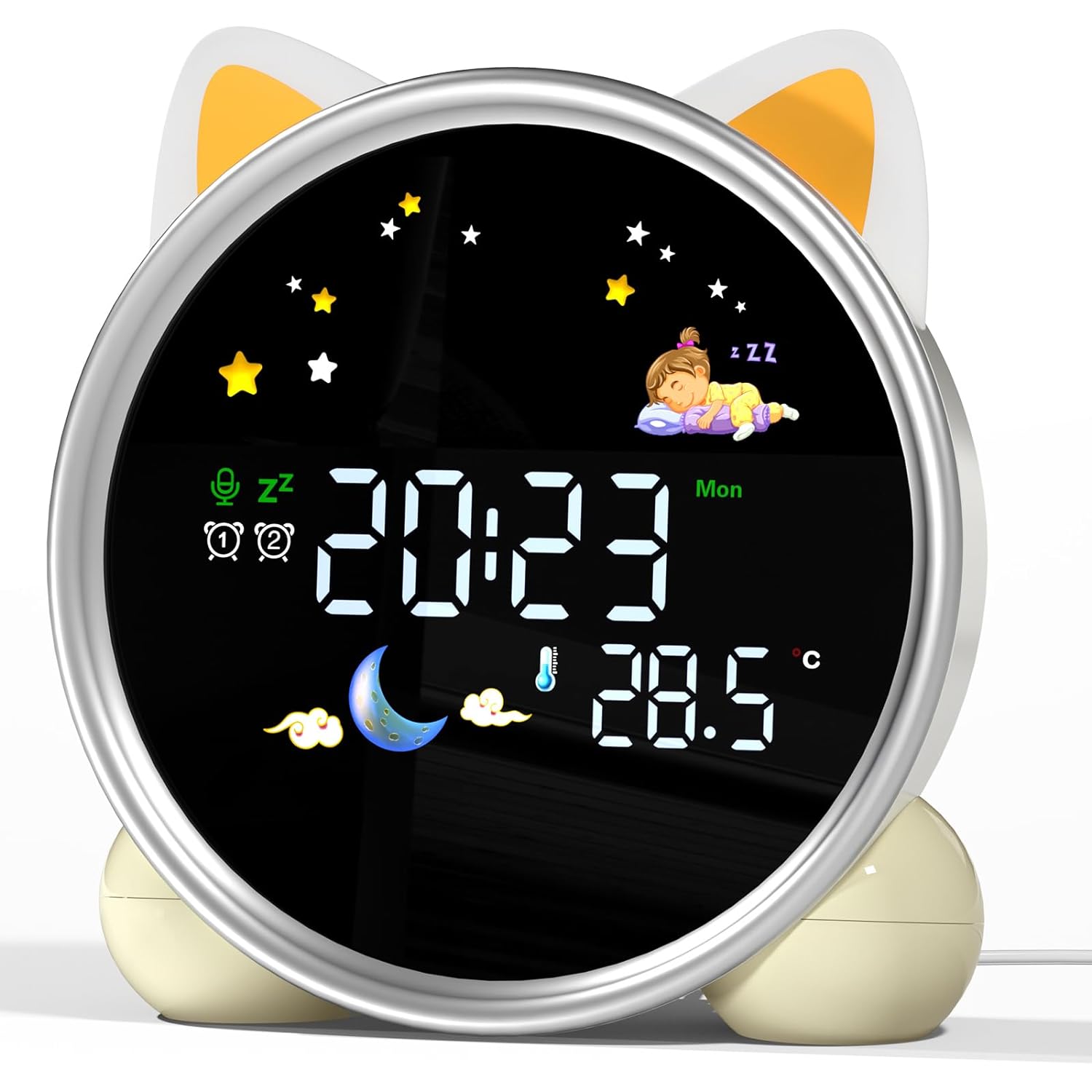Why a Digital Alarm Clock Still Matters
Digital alarm clock might sound like old tech in a smartphone-driven world, but hear me out. While phones keep you connected 24/7, they’re also the root of bedtime distractions.

Digital alarm clocks bring focus back to what really matters: reliable, stress-free wake-ups without doom-scrolling. Here’s why switching makes a whole lot of sense.
What Is a Digital Alarm Clock?
A digital alarm clock is a timekeeping device that displays time electronically, usually with LED or LCD screens. Unlike analog clocks, which rely on rotating hands, digital clocks show exact time down to the second and come with added features like alarms, radios, or light simulations.
Digital vs Analog: Analog clocks are nostalgic, but digital ones are practical—clearer, quieter, and smarter.
Table of Contents
1. Digital Alarm Clocks and Accurate Timekeeping
Forget squinting at hands pointing between two numbers. Digital alarm clocks offer pinpoint accuracy. Most models are synced or calibrated to keep exact time, which is especially useful for people with tight schedules or those who value punctuality.
2. Digital Alarm Clocks with Easy-to-Read Display
Clarity is one of the best perks. Large, high-contrast digits make digital clocks easy to read from across the room or in the dark. Some even allow you to dim the screen or change display colors for comfort.
Perfect for:
- Older adults
- People with visual impairments
- Midnight time-checks without fully waking up
3. Digital Alarm Clocks with Multiple Alarm Settings
Need different wake-up times for weekdays and weekends? A digital alarm clock can handle that. Many models allow you to schedule multiple alarms for different days, ensuring you never have to manually reset each night.
This is ideal for:
- Students
- Working professionals
- Families with varied routines
4. Digital Alarm Clock with Snooze Functionality
Let’s be honest—most of us hit snooze. Digital clocks let you personalize snooze intervals, giving you those extra 5 or 10 minutes without oversleeping. Some models also feature progressive alarms that start soft and gradually get louder.
5. Digital Alarm Clocks with Customizable Sounds
No more shrill buzzing that jolts you awake. Choose from soft melodies, radio stations, or nature sounds. Whether you’re a light sleeper or need something louder to get moving, there’s an alarm sound for you.
6. Digital Alarm Clocks with USB Charging Ports
One of the best modern additions to digital clocks is the USB charging feature. You can plug in your phone, watch, or wireless earbuds—making it a complete bedside solution without needing extra adapters.
7. Digital Alarm Clock with Battery Backup
Ever had your alarm fail during a power outage? With a digital alarm clock featuring battery backup, that’s no longer a concern. It keeps your settings saved and your alarm ringing on time—even when the lights go out.
8. Digital Alarm Clock for Travel Use
Compact digital clocks are lightweight, durable, and built for travel. Some fold flat for easy packing, while others come with protective cases or dual voltage compatibility. Whether you’re traveling for business or leisure, they’re dependable.
9. Digital Alarm Clock vs Mobile Phone Distractions
Using your phone as an alarm sounds convenient, but it often leads to unnecessary screen time. With a digital alarm clock, you reduce the urge to scroll late into the night and instead focus on rest and routine.
10. Digital Alarm Clock with Sunrise Simulation

Some digital clocks now feature sunrise simulation, where the light slowly brightens before your alarm goes off. This mimics natural sunlight and helps you wake up gently and in a better mood—especially in winter when mornings are dark.
11. Digital Alarm Clock for Kids and Time Management

A digital alarm clock helps kids learn about time, responsibility, and structure. Many children’s models include fun colors, icons, or sounds. They’re great for building good habits like waking up independently or getting ready for school.
12. Digital Alarm Clocks to Enhance Sleep Routine
Consistency is key to healthy sleep. A digital alarm clock promotes discipline by maintaining a fixed bedtime and wake-up time. Unlike phones, it doesn’t disrupt melatonin production or lure you into late-night scrolling.
How to Choose the Best Digital Alarm Clock
When shopping for a digital alarm clock, consider:
- Display: Choose adjustable brightness and easy-to-read numbers
- Alarm Type: Sound options, volume, vibration
- Power Source: Battery-powered, plug-in, or both
- Extras: USB ports, radio, Bluetooth, night light, etc.
- Size & Portability: Depending on home or travel use
Conclusion – Why You Should Switch to a Digital Alarm Clock
Switching to a digital alarm clock may seem like a small lifestyle change, but the impact is big. You get reliable wake-ups, better sleep habits, fewer distractions, and even some cool bonus features. It’s a focused, intentional step toward a more productive and peaceful morning routine.
FAQs – Digital Alarm Clock Questions Answered
Q1: Are digital alarm clocks more reliable than smartphones?
Yes. They offer distraction-free functionality and often have backup features like batteries for added reliability.
Q2: Do digital clocks consume a lot of power?
No. Most digital clocks are energy efficient and consume minimal electricity.
Q3: What is sunrise simulation in alarm clocks?
It’s a feature that mimics natural sunlight by gradually brightening to wake you gently.
Q4: Can digital alarm clocks help improve sleep quality?
Yes, by encouraging regular routines and removing screen distractions before bed.
Q5: Are digital alarm clocks good for kids?
Absolutely. They teach time management and help kids stick to daily routines.



